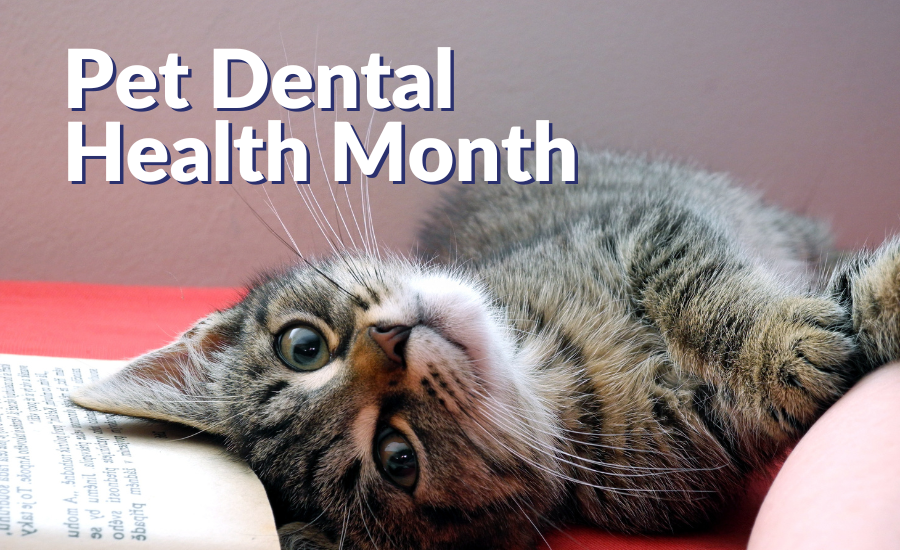Smile…
Smile and the whole world smiles with you, especially if you take great care of that smile. Caring for your teeth and your children’s teeth is a natural part of taking care of ourselves, but did you know that your pet needs the same kind of care? Many pet owners don’t. February is great time to learn about taking care of your pet’s teeth and gums because it’s National Pet Dental Health Month.
The Importance Of Pet Dental Care
Good dental care for your pet is more important than you might realize. Aside from the pain that can occur from your pet’s dental problems, poor pet dental care can cause other health concerns, too. Food particles and bacteria build up on your pet’s teeth, causing dental problems, but those bacteria can also enter your pet’s bloodstream and cause damage to their heart, liver, lungs, and kidneys.
Your pet can develop many of the same oral health problems that you can, including:
- Broken teeth
- Infected teeth
- Abscesses
- Broken roots of their teeth
- Cysts
- Tumors
Your pet may also have been born with an oral health condition like:
- A cleft palate
- Misalignment of the teeth and jaw
- Retained baby or milk teeth
- Extra teeth
How To Know If Your Pet Has A Dental Problem
Your vet will examine your pet’s mouth each year during their annual check-up and can advise you about anything they see. There are other things you might see during the year to indicate a dental problem, including:
- Bad breath
- Drooling
- Unwillingness to eat
- Dropping food from their mouth
- Not eating at all
- Obviously broken teeth
- Bleeding gums or teeth
- Swollen gums
If your pet experiences any of these, they should visit their veterinarian who will help you determine the best course of treatment for them.
More Than Once A Year
Your pet’s dental care is like your own – best if it’s done frequently and regularly. Ideally, your pet’s teeth should be wiped or brushed daily, but sometimes that’s not possible. Brushing or wiping their teeth should be done three or four times weekly at a minimum. When caring for your pet’s teeth, be sure to:
- Only use toothpaste approved for use by animals
- Never use toothpaste containing xylitol
- Use a dog or cat toothbrush
- Use only dental wipes specifically made for pets
- Make sure your pet is eating a well-balanced diet specific to their breed, weight, and age
You can use dental chews, too, but make sure they’re not too hard because some brands of dental chews can cause tooth fractures.
Professional Pet Dental Care
Your pet may need professional dental care. Most pets need dental care beginning as young as three. The American Dental Veterinary Society has found that 80% of dogs and 70% of cats need dental treatment for either oral or dental disease by the time they’re three, so it’s a very common part of pet care.
Your pet may need a dental cleaning, tooth extraction, or another oral health procedure, all of which will be done under anesthesia. Your veterinarian will require a pre-treatment check-up and blood work to make sure your pet is healthy enough to have a successful procedure.
Minnesota Veterinary Hospital
If you’re in Shoreview, MN, Minnesota Veterinary Hospital, can help with your pet’s dental care and more. Contact us so we can help.
Image credit: Pexels

